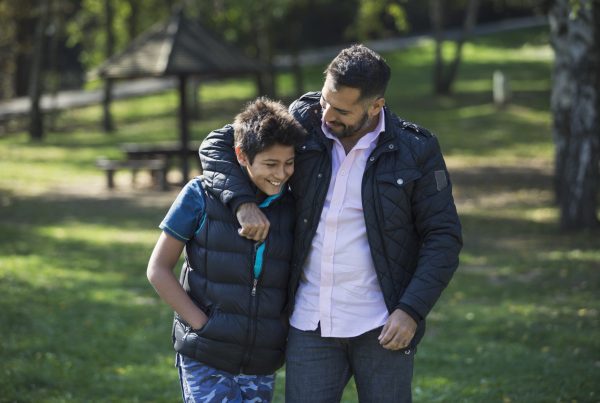It’s essential to approach the conversation about drugs with teens calmly and informatively. Choose a good time and place, stay calm, and engage in open dialogue without lecturing. Be direct about the risks, collaborate on a safety plan, and be supportive.
As parents, educators, or guardians, it is critical to address the topic of drugs with the teenagers in our lives. The conversation should be informative, supportive, and open. This article will guide you on how to talk to teens about drugs in an effective and compassionate manner.
How to Talk to Teens About Drugs
Talking to teens about drugs can often feel like navigating a minefield. The increasing prevalence of drug use among teenagers can make any parent’s heart race with anxiety. Not knowing what to say, or worse, saying the wrong thing, can exacerbate the issue.
However, there’s hope. With the right approach, grounded in openness, information, and support, you can effectively communicate with your teen about drugs and help guide them through this critical phase of life.
This article will share practical tips on how to talk to teens about drugs, fostering a supportive and preventive environment.
Create an Environment of Understanding
Before initiating the conversation, ensure you have adequate information about various drugs, their effects, and the reasons why teens may resort to using them. Research the current drug trends among teenagers and familiarize yourself with the social pressures they might be facing. A well-informed approach will help you gain your teen’s respect and make the conversation more impactful.
Select a Good Time and Place to Connect
Selecting an appropriate setting for the conversation is crucial. Choose a time when both you and your teen are not preoccupied or stressed. Opt for a calm and comfortable environment that is free from distractions. This will enable you both to concentrate on the discussion without feeling rushed or anxious.
Stay Calm
Maintaining a composed demeanor is essential. Your teen will be more receptive to the conversation if they see that you are calm and collected. If you appear anxious or agitated, it may cause them to become defensive or unresponsive. Aim to create a non-judgmental atmosphere that encourages open communication.
Ask, Listen, and Talk Together
Engage your teen in a two-way conversation. Ask open-ended questions to encourage them to share their thoughts and experiences. Listen actively without interrupting. Make sure that the conversation is a dialogue, not a monologue. Avoid lecturing as it can create a barrier in communication and make them less likely to open up.
Have Specific Conversations
Tailor the conversation to address specific issues relevant to your teen. For example, if your teen is involved in sports, discuss how drug use can impact their athletic performance. If they are academically inclined, discuss how drug use can affect their cognitive abilities and academic performance.
Be Direct
Teens appreciate honesty and directness. Be candid about the risks and consequences of drug use. Share factual information and debunk any myths they might have heard. Avoid using scare tactics, as this can cause them to tune out or become skeptical of what you’re saying.
Create a Safety Plan
Work together to establish a plan for dealing with situations where drugs may be present. Discuss strategies for saying no, and the importance of calling for a safe ride home if needed. Make sure they know they can contact you without judgment in any situation where they feel unsafe or pressured.
Get to Know Your Teen’s Friends and Their Parents
Teens are heavily influenced by their peers. It’s important to know who your child is spending time with. Encourage your teen to invite their friends over and make an effort to meet their parents. Building relationships with other parents can be an additional support system in helping your teen make positive choices.
Acknowledge Family History of Substance Use
If there is a history of substance abuse in your family, it’s essential to talk openly about it. Explain that some individuals might be more predisposed to addiction due to genetic factors. Discuss the importance of being extra cautious and vigilant due to this familial predisposition.
How to Get Help
If you suspect or know that your teen is using drugs, it is essential to seek help immediately. Consult a doctor, school counselor, or contact a local substance abuse treatment center. Early intervention can prevent the progression of drug use and its associated consequences.
Substance Abuse Treatment at Visions
Imagine the relief of knowing that your teen is in a safe place, receiving the support and care they need to overcome substance abuse.
Visions Adolescent Treatment Centers specialize in helping teenagers combat drug addiction. With a team of experienced professionals and a tailored approach, Visions ensures that your teen receives the highest quality of care. The center offers counseling, educational programs, and family support, addressing not just the symptoms but the underlying causes of substance abuse.
Picture your teen rediscovering their passions, engaging positively with family, and building a future they can be proud of. Visions can make this a reality. Through their holistic approach, they empower teenagers to take control of their lives, free from the chains of addiction.
Don’t wait for things to get worse. If your teen is struggling with substance abuse, take the first step towards recovery by contacting Visions Adolescent Treatment Centers today. Our compassionate staff is ready to help your family start this life-changing journey.
Frequently Asked Questions about Talking to Teens About Drugs
We hear from a lot of parents who aren’t quite sure how to talk to teens about drugs. Here are some of the most frequently asked questions and answers.
How to talk to high school students about drugs?
When talking to high school students, it’s important to relate the information to their current life stage. Address the impact on academics, relationships, and future goals. Encourage open discussions, answer questions honestly, and provide real-life examples or scenarios.
What age should parents talk to kids about drugs?
Parents should begin discussing drugs with their children around the age of 8 or 9. It’s best to start with simple, age-appropriate information and gradually delve into more detail as they get older and enter their teenage years.
How do you address substance abuse among youth?
Addressing substance abuse among youth requires a comprehensive approach. Encourage open communication, educate them about the risks, and provide support. Be vigilant for signs of substance abuse, foster a supportive environment, and seek professional help if necessary.
What are good discussion questions about drugs?
Some good discussion questions include: What do you know about drugs? Why do you think some people use drugs? What are the consequences of drug use? How can drug use affect one’s future? What are some ways to say no if someone offers you drugs?
How do you start a drug abuse speech?
Start a drug abuse speech by grabbing the audience’s attention with a startling statistic or real-life story. Then, introduce the topic and its significance. Provide an overview of what will be covered in the speech, and establish your credibility on the subject.
Conclusion
Talking to teens about drugs is a necessary but often challenging task. It’s essential to be well-informed, choose the right environment, and stay calm throughout the conversation. Engage in an open dialogue, be direct, and collaborate on a safety plan. Additionally, knowing your child’s friends and acknowledging any family history of substance use can be insightful. If necessary, don’t hesitate to seek help, and consider options like Visions Adolescent Treatment Centers. By approaching the conversation with understanding, respect, and support, you can help guide your teen through the pressures and choices they face regarding drug use.
Remember, the goal is not just to inform but to build a foundation of trust and communication that can help them make positive choices and know that they can turn to you for support when needed.








